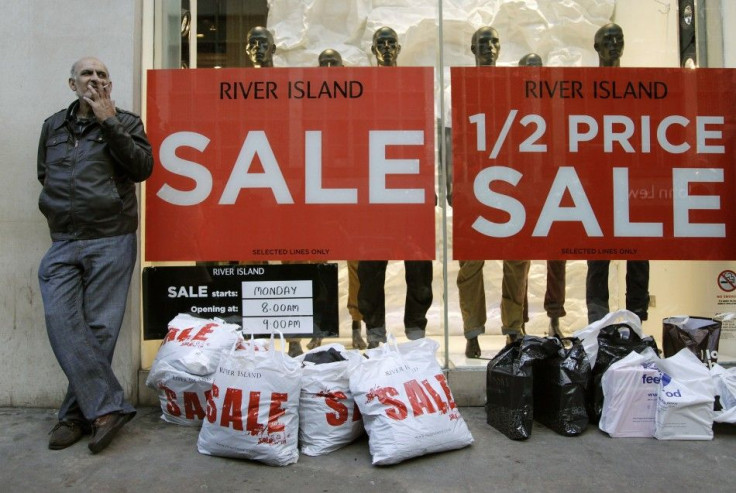Consumer Sentiment Weaker in February as U.S. Spenders Look for a Brighter Future

U.S. consumers are feeling relatively upbeat about where the economy will be six months from now, but having maxed out their credit cards and perhaps purchasing a big-ticket item over the holidays, they're sticking to a budget.
Those are the main findings from a preliminary survey of February consumer sentiment conducted by the University of Michigan and Thomson Reuters, released Friday. The benchmark consumer sentiment index fell to 72.5 from 75 in January, lower than the 74.8 reading economists surveyed by Bloomberg expected.
Current conditions, and more precisely a negative tone towards current finances, was the heaviest drag, Vimombi Nshom, an economist at IFR economics, told Reuters. Even though optimism towards the job market kept up, the CSI was unable to hang on to sentiment expressed last month.
The drop was attributable to guarded views consumers expressed about their ability to make big purchases; the component index that measures consumer's current financial comfort went to 79.6 from 84.2 the previous month. The component index that measures expectations six months down the road suffered a smaller decline, falling to 68 from 69.1 last month.
The number of U.S. spenders feeling positive about the economy rose in January on positive labor and income data, better-than-expected retail sales numbers over the holidays and some indicators showing stabilization of the housing market. Economists expected a bit of a decline, given what they saw as overstated exuberance last month.
The price of gasoline, uncharacteristically up in January, gave consumers pause about their financial health. Other signs also show U.S. shoppers being financially cautious. While retail sales over the holiday season soared, and sales of big-ticket items like automobiles and factory equipment were strong in January, data from the Federal Reserve shows people putting those purchases on credit cards. Other consumer purchases have been dropping even as automobile and holiday sales soared. Consumer purchases increased only two percent in the fourth quarter, the Commerce Department said, less than what economists had expected. That increase lagged increases in personal income.
All in all, U.S. consumers seem to be taking a breather, with some being prompted by the slightly improved economic picture to make long-delayed purchases and others seeing the same development as a reason to save for an uncertain future.
© Copyright IBTimes 2024. All rights reserved.



















